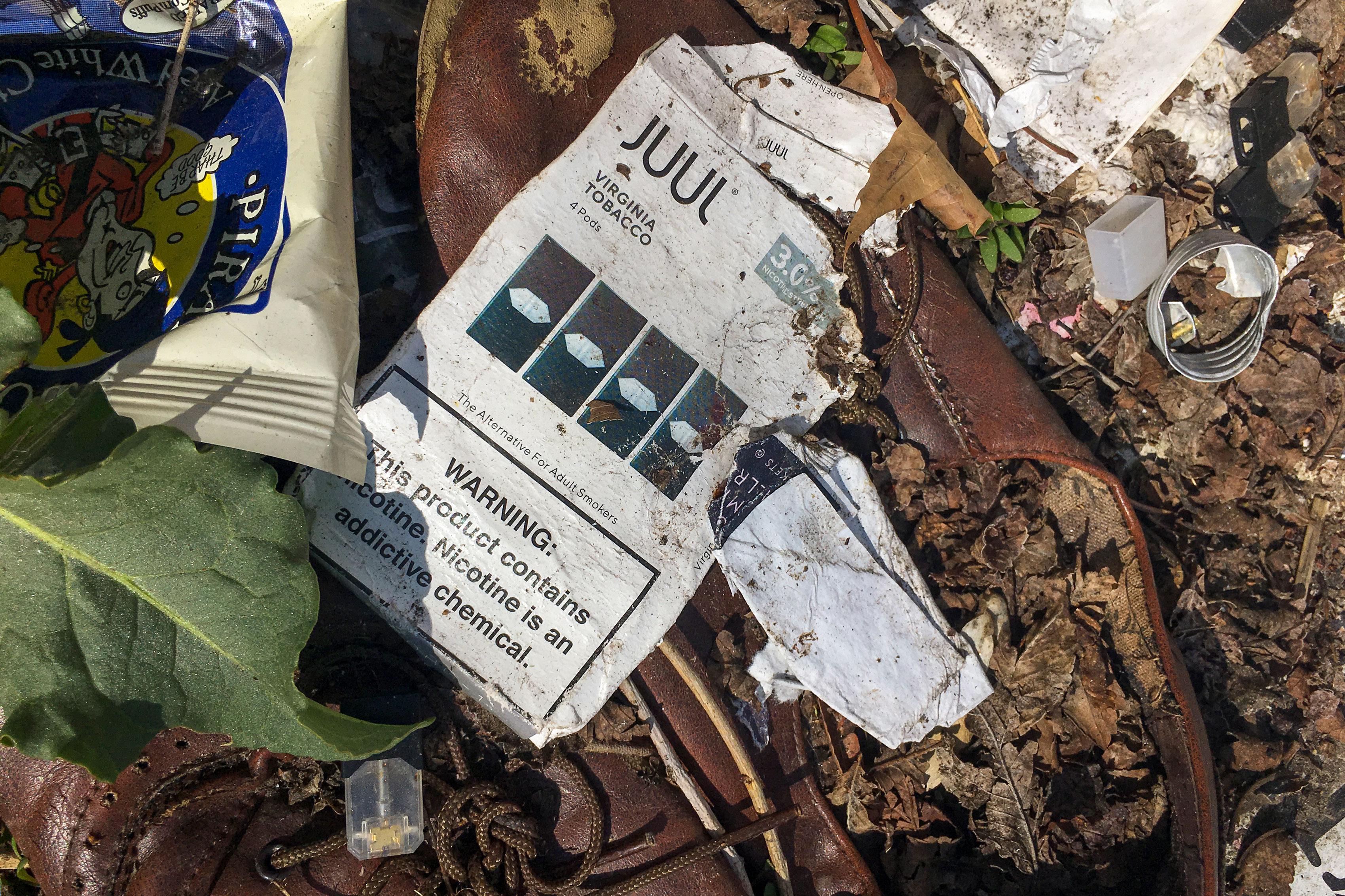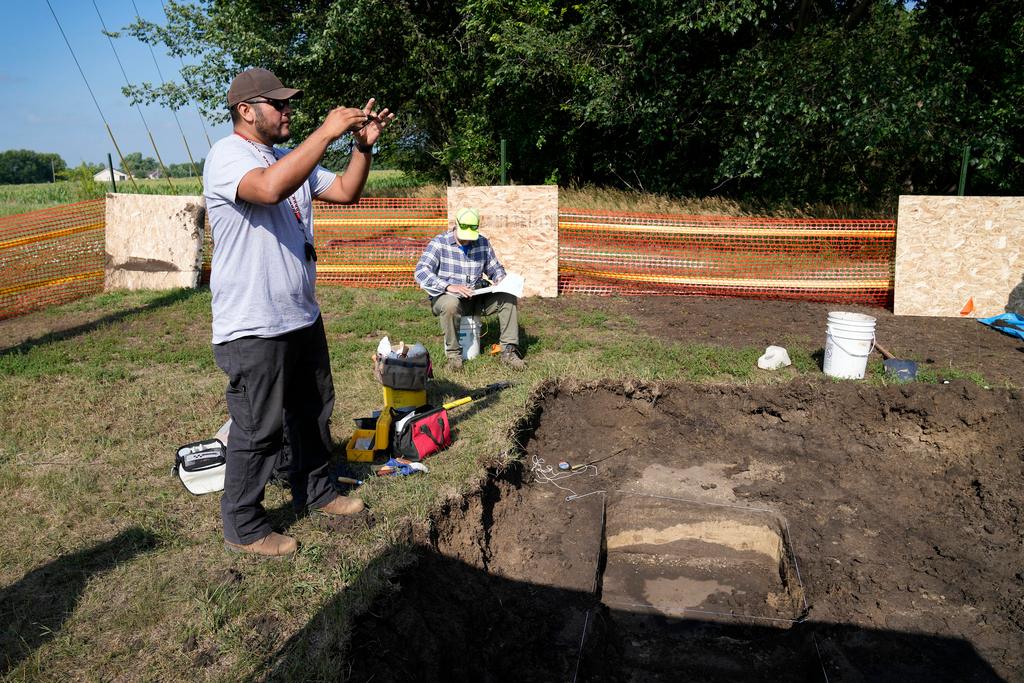
Updated 12:52 p.m., April 12
Colorado will get nearly $32 million as part of a multi-state legal settlement with Juul, the e-cigarette manufacturer, which helped spark a nationwide epidemic of teen vaping.
“We sued them, and we sued them because what they did was harming our young people,” Democratic Colorado Attorney General Phil Weiser said.
Weiser said the funds would go to cessation and prevention, though details still remain to be worked out.
“With over $30 million, we're now gonna be in a position to address a public health and a mental health challenge,” he said. “Our young people really deserve more support.”
“I think it's great, and it's a lot of money,” said Mary Burt, a regional health connector based in Gunnison, who works with school districts and six counties, which “could definitely use it, to specifically target vape usage.”
While glad to hear about the settlement, Burt had choice words for the company.
“I think they're just like any of those Big Tobacco companies, they got caught,” she said. “They're trying to get away with sleazy business marketing practices to young children.”
Burt is also a mother of a 20-year-old, who struggled with vaping in high school in Gunnison. He eventually quit. At his school, e-cigarette usage was commonplace among students.
“They took the doors off the bathrooms to try to deal with the vaping problem,” she said. “That's not a very safe environment in my opinion.”

She said a statewide survey has shown high percentages of high schoolers who say they’ve tried vaping. Many want to quit but don’t know where to turn. “We're not giving them access to resources or doing any sort of outreach on it, (it’s) certainly a gap we could fill,” Burt said.
In 2020, the state sued Juul over its marketing practices. An investigation found the company advertised directly to young people and misrepresented the health risks of its products, according to Weiser. Juul targeted “cool kids” in ads and social media campaigns. It deployed “brand ambassadors” to hand out free samples to young people at Colorado convenience stores. It hired social media influencers to promote the products with an eye to introducing e-cigarettes to young people.
Vaping took off around the country as a result and “Juuling” became a ubiquitous expression and habit for many young people, Weiser said.
Social media, sites like Instagram or YouTube, became a key venue for the message. Weiser said the company was, “very aware of the virality of social media, aware of the norms of social media. Juul identified influences that young people would pay attention to and set up what I'll call negative social norms. Juul or Juuling is cool. That was the norm.”
Under the agreement, Juul will be prohibited from using those marketing tactics in the future.
Five other states and the District of Columbia are part of the $462 million settlement. When the state filed the lawsuit, Colorado was the top state in the nation per capita for teen vaping. One in six Colorado teens reported they had vaped in the past month, according to state data from 2021, the most recent available.
In a statement, a company spokesman Austin Finan said Juul was nearing a “total resolution of the company’s historical legal challenges and securing certainty for our future.”
He noted the company has now settled with 47 states and territories, providing over $1 billion to participating states, plus a “global resolution of the U.S. private litigation.”
Finan said the company “reset” in 2019 and that since then underage use of Juul products has declined by 95 percent based on the National Youth Tobacco Survey.
He described the company as now pivoting to harm reduction.
“Now we are positioned to dedicate even greater focus on our path forward to maximize the value and impact of our product technology and scientific foundation,” he said. The company is seeking federal authorization for new products through the Food and Drug Administration “to accelerate our mission and advance tobacco harm reduction for over 31 million adult smokers in the U.S. and over 1 billion adult smokers worldwide.“
As part of the settlement, internal documents from the company will be disclosed through a public document depository, similar to ones that exist for tobacco and opioids.
“Sunlight is among the best of disinfectants,” Weiser said. “What JUUL did here was to, in a self-conscious manner, follow the playbook of Big Tobacco. Big Tobacco had a marketing strategy. ‘We need to get our customers hooked when they're young, they'll stay with us through their lives.’”
Altria, the leading U.S. cigarette manufacturer bought a 35 percent stake in Juul in 2018, only to abandon the relationship last month, after Juul’s value dropped sharply following legal trouble, according to the Financial Times.
Colorado's settlement was part of a coordinated push with other attorneys general, including from California, the District of Columbia, Illinois, Massachusetts, New Mexico, and New York. Last year, more than 30 states opted not to take legal action against the company. They entered into a $438 million settlement agreement with Juul.
More coverage of Juul and teen vaping:
- How Colorado’s flavored nicotine ban debate raises questions about racial justice and where the state gets money
- Flavor ban bill dies in Senate committee as session scrambles to wrap up
- Governments Are Suing Juul And It’s Starting To Feel More Like The Opioid And Big Tobacco Fights
- Juul E-Cigs Have Been A ‘Game Changer’ For Colorado Teens, But What Of The Risks?
- Tobacco Retail Is Concentrated Near Denver Schools And Low-Income Neighborhoods, A New Study Finds









